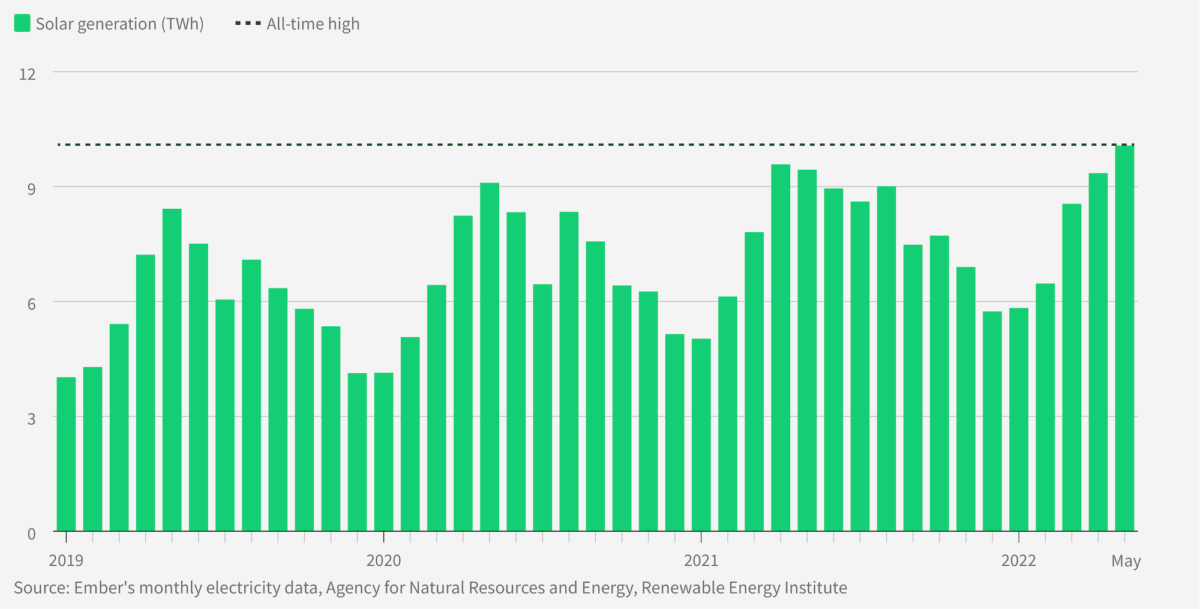Japan and South Korea generated record amounts of solar electricity in May, according to clean energy thinktank Ember.
The London-based policy group in July published figures indicating Japan generated more than 10 TWh of solar power in May, up from the previous record of around 9.5 TWh in April 2021; and South Korea hit around 3.25 TWh of solar in May, up from the previous month's 2.8 TWh.
Those output records amounted to 15% and “more than 7%” of national electricity generation, respectively, according to Ember, which was formerly known as Sandbag.
The figures illustrate how far each nation has to go in the energy transition, according to Ember, which lobbies for the switch from coal to clean power.
The not-for-profit said Japan generated 68% of its electricity from fossil fuels last year, with the same sources supplying 56.2% of South Korea's electricity.
In Japan's case, that compares with 9.8% of electricity from solar last year, Ember said, with the government working on a new coal power plant in Taketoyo, central Japan.
Japan has the world's fourth largest solar fleet, according to Ember, and South Korea the ninth biggest but the latter nation still only generates around 4% of its electricity from solar, even if the volume of solar electricity has been rising steadily since November.
Aditya Lolla, Ember Asia's senior electricity policy analyst, quoted on the thinktank's website, said: “Solar’s continued growth in Japan and South Korea represents a positive sign in moving towards a more sustainable, affordable, and secure energy supply. The added capacity has been especially valuable recently but both countries have a lot more potential they need to tap into.”
This content is protected by copyright and may not be reused. If you want to cooperate with us and would like to reuse some of our content, please contact: editors@pv-magazine.com.




By submitting this form you agree to pv magazine using your data for the purposes of publishing your comment.
Your personal data will only be disclosed or otherwise transmitted to third parties for the purposes of spam filtering or if this is necessary for technical maintenance of the website. Any other transfer to third parties will not take place unless this is justified on the basis of applicable data protection regulations or if pv magazine is legally obliged to do so.
You may revoke this consent at any time with effect for the future, in which case your personal data will be deleted immediately. Otherwise, your data will be deleted if pv magazine has processed your request or the purpose of data storage is fulfilled.
Further information on data privacy can be found in our Data Protection Policy.